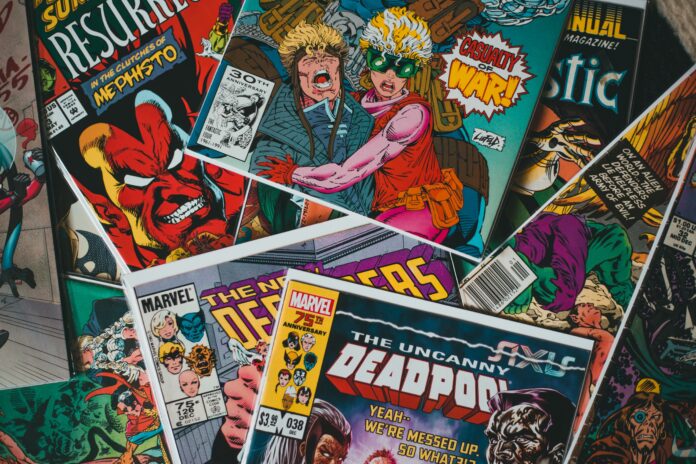Marvel Cinematic Universe (MCU) is a vast and immensely popular franchise that has taken the world by storm, captivating audiences with its thrilling storytelling, memorable characters, and groundbreaking visual effects. Spanning over a decade and comprising multiple interconnected films and television series, the Marvel Cinematic Universe has become a cultural phenomenon, redefining the superhero genre and setting new standards for blockbuster filmmaking. In this comprehensive exploration, we will delve into the origins, evolution, and impact of the Marvel Cinematic Universe, highlighting its most significant milestones and notable achievements.
The Marvel Cinematic Universe began its journey in 2008 with the release of “Iron Man,” a film directed by Jon Favreau and starring Robert Downey Jr. as the charismatic Tony Stark, a billionaire genius who dons a high-tech suit of armor to become the iconic superhero Iron Man. This film not only marked the birth of the Marvel Cinematic Universe but also set the stage for what was to come: a sprawling narrative tapestry interwoven with complex characters, epic battles, and a shared continuity that would captivate audiences worldwide.
“Iron Man” was followed by several standalone films featuring other Marvel characters, including the incredible Hulk, Thor, and Captain America. These films laid the groundwork for a much larger narrative that would culminate in the ultimate team-up event: “The Avengers.” Directed by Joss Whedon and released in 2012, “The Avengers” brought together Earth’s mightiest heroes, including Iron Man, Captain America, Thor, Hulk, Black Widow, and Hawkeye, to save the world from the villainous Loki. The immense success of “The Avengers” solidified the Marvel Cinematic Universe as a force to be reckoned with, both critically and commercially.
With the triumph of “The Avengers,” Marvel Studios and its president, Kevin Feige, embarked on an ambitious plan to expand the Marvel Cinematic Universe further. They introduced new characters like Ant-Man, Doctor Strange, Black Panther, and Captain Marvel, while also continuing the stories of established heroes. The interconnectedness of the films became one of the MCU’s defining features, as characters from different films would frequently cross paths, leading to exhilarating team-ups and unexpected alliances.
As the Marvel Cinematic Universe grew, it also expanded beyond the realm of cinema. Marvel Studios ventured into television with series like “Agents of S.H.I.E.L.D.” and “Agent Carter,” which further explored the MCU’s mythology and introduced new characters. However, it was the arrival of streaming services that truly revolutionized the Marvel Cinematic Universe’s television landscape. In 2015, Marvel and Netflix collaborated on a series of shows, collectively known as the Marvel Netflix Universe, which included critically acclaimed series such as “Daredevil,” “Jessica Jones,” “Luke Cage,” and “Iron Fist.” These street-level heroes offered a grittier and more grounded perspective within the larger Marvel Cinematic Universe.
The success of the Marvel Netflix Universe paved the way for Marvel Studios to create their own original content for Disney+, the streaming platform owned by The Walt Disney Company. The introduction of Disney+ marked a significant turning point for the Marvel Cinematic Universe, as it allowed for even greater storytelling opportunities and character development. Series like “WandaVision,” “The Falcon and the Winter Soldier,” and “Loki” not only expanded the narratives of beloved characters but also introduced new ones, including the breakout star of “WandaVision,” Kathryn Hahn’s Agatha Harkness. These shows seamlessly interconnected with the films, blurring the lines between the big and small screens and creating a truly immersive and interconnected Marvel Cinematic Universe.
The impact of the Marvel Cinematic Universe extends far beyond the box office. Its influence on popular culture cannot be overstated. The MCU has sparked a renewed interest in comic book adaptations, leading to the proliferation of superhero films and television shows across various studios and platforms. It has also set a new standard for world-building and continuity, inspiring other cinematic universes to follow suit.
Moreover, the Marvel Cinematic Universe has provided a platform for underrepresented voices and stories. With films like “Black Panther,” which celebrated African culture and became a global phenomenon, and “Captain Marvel,” which featured Marvel’s first female-led superhero film, the MCU has championed diversity and inclusion, pushing boundaries and challenging societal norms.
The Marvel Cinematic Universe has revolutionized the way we experience superhero storytelling. From its humble beginnings with “Iron Man” to its current status as a sprawling multimedia franchise, the MCU has captivated audiences worldwide with its rich mythology, compelling characters, and epic storytelling. Through its films and television series, the Marvel Cinematic Universe has created a shared universe unlike any other, where heroes from different walks of life come together to save the day. Its impact on popular culture and the entertainment industry at large is undeniable, and its future continues to be filled with endless possibilities and excitement for fans around the globe.
The success of the Marvel Cinematic Universe can be attributed to several key factors. Firstly, the meticulous planning and strategic vision of Marvel Studios, led by Kevin Feige, have been instrumental in creating a cohesive and interconnected narrative. From the very beginning, Feige and his team laid out a roadmap for the MCU, carefully plotting the trajectory of each character and their respective storylines. This long-term approach allowed for the gradual buildup of anticipation and suspense, culminating in highly anticipated ensemble films such as “Avengers: Endgame,” which shattered box office records and delivered a satisfying conclusion to an epic saga.
Secondly, the Marvel Cinematic Universe has excelled in casting and character development. Robert Downey Jr.’s portrayal of Tony Stark/Iron Man, for instance, was a stroke of genius casting that brought the character to life in a way that resonated with audiences worldwide. The chemistry between the actors and their ability to embody their respective characters has been a consistent strength throughout the MCU, allowing viewers to emotionally invest in their journeys and forge deep connections with these fictional heroes.
Another significant aspect of the Marvel Cinematic Universe is its ability to balance spectacle with emotional depth. While the films are renowned for their exhilarating action sequences and groundbreaking visual effects, they also delve into complex themes and explore the human side of their characters. From Tony Stark’s personal growth and redemption arc to Steve Rogers grappling with his identity and moral compass, the MCU has demonstrated a commitment to crafting multi-dimensional characters that audiences can relate to and root for.
Furthermore, the Marvel Cinematic Universe has expertly crafted a sense of community and fan engagement. Through events like San Diego Comic-Con and Disney’s D23 Expo, Marvel Studios has cultivated an environment where fans can come together to celebrate their shared love for the franchise. The studio has also embraced social media, engaging with fans directly and generating buzz and excitement through teasers, trailers, and behind-the-scenes content. This level of interaction has fostered a passionate and dedicated fan base, further fueling the success and longevity of the Marvel Cinematic Universe.
Looking ahead, the future of the Marvel Cinematic Universe is filled with both anticipation and intrigue. Phase 4, which began with “Black Widow” and includes highly anticipated films like “Shang-Chi and the Legend of the Ten Rings,” “Eternals,” and “Spider-Man: No Way Home,” promises to introduce new characters, expand the universe even further, and pave the way for exciting new storylines. Additionally, the Marvel Studios television series on Disney+ will continue to explore the vast narrative possibilities of the MCU, with upcoming shows such as “Hawkeye,” “Ms. Marvel,” and “Moon Knight.”
In conclusion, the Marvel Cinematic Universe has transcended the boundaries of traditional superhero storytelling, captivating audiences worldwide with its rich mythology, diverse characters, and interconnected narrative. It has redefined the blockbuster landscape, setting new standards for cinematic universes and inspiring a new generation of filmmakers and storytellers. With its commitment to character-driven narratives, stunning visual effects, and a passionate fan community, the Marvel Cinematic Universe continues to dominate the global entertainment landscape, ensuring its place in pop culture history for years to come.


















